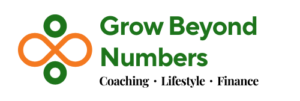Work-life balance has been the holy grail for so many of us for so long, especially for financial professionals. Cambridge dictionary defined work-life balance as the amount of time spent at work against the amount of time spent with family and leisure. There should be a balance between professional life and personal life.
The high demand for excellent services which shaped the culture of this financial industry has always required a certain level of sacrifice from the financial professionals. Speed and urgency are always on top of our agenda. We all want to go faster, go bigger, and do more right? So we keep pushing ourselves too hard and too long, and we get burnt out!
We do have a real problem with boundaries between work time and home time. Our work is never done, so there is no “finishing” work for the day like we are “on-call” all the time. So we prioritize work more than anything else and that compromises our family and health, as we keep telling ourselves (or loved ones) that one day we will be able to do it.
Then, with the pandemic lockdown, ironically, this could have offered the chance for a healthy mix of work and family time. But I would say, it’s only for some people, some of the time. Just like the Coronavirus rollercoaster of emotions, our experiences with work-life balance go up and down as well. Remote working has proven to be more challenging for financial professionals, as there is no separation between workspace and home area, either physically or even mentally. Many have been working longer hours than they did before. Boundaries between work time and home time are also diminishing.
So work-life balance is really a mindset problem rather than a practical one.
The common mistakes of work-life balance that financial professionals do are:
1. Everyone is a prospect
Financial professionals often find it difficult to turn down business and they must take any of them that come along to generate income quickly and get established. So we cast an ever-wider net to try and attract anyone, and the number game mode is on. This might work in the short term. You might get real quick clients, and at the same time, you might lose them fast enough. If you try to attract anyone, you attract no one. It’s a waste of time, money, and energy when you try to serve everyone, which as a result, you compromise your goal for work-life balance.
Instead, you should clearly identify and define the ideal client profile that you wish to serve as your clients. Be prepared to exclude some of your potential clients if they are not a good fit for you. By having a more defined ideal client profile that you wish to serve, you would be able to develop deeper and more satisfying client relationships, enjoy your work more and be more rewarding and successful in the long run.
2. We are in the “service” industry
We are in the “helping” profession and in a service-oriented industry, so we try to please every client. There seems to be an overwhelming sense of obligation to our clients to provide all kinds of favors or services, at times or run the risk of offending them. Perhaps it’s a deep-seated fear that we should never reject our clients’ requests.
You should.
Financial professionals often have so much on their plates that they simply don’t have enough time to get everything done. Learning to say “no” is a skill needed to stay focused and do what you are best at, invest your time and money to effectively serve those prospects or clients that you can help.
Remember, clients may have many problems to solve, but you don’t have to be the solution. It’s ok to say no if you honestly believe it’s in your clients’ best interests, and you are also doing justice to yourself or your work.
3. 24 hours on Call
As the saying goes “there is a lot of money in the money business”. For financial professionals, this career is often touted to be one where agents/advisors have ‘unlimited income potential, or at least, an earning opportunity that is limited only by “hours of work” that the advisor is willing to put in to build their books of clients.
Don’t get me wrong, I am not saying you don’t work hard, but it’s how you can earn that unlimited income by working more efficiently with those ideal clients while enjoying work-life balance.
Firstly, you got to have a plan, a solid business plan that includes your vision and mission, identify your strength, the target audience, types of services, sales and marketing strategy, and work out a profitable spreadsheet of your business. This is to ensure that you have a clear direction and optimize the limited resources more effectively.
Next, calculate how many hours in a week or month you plan to work including meeting clients/prospects, training, preparing reports, and sales activities in order to generate the desired revenue.
Lastly, block your calendar for the hours/days that you plan to spend time with family and leisure time. Also, it’s important to schedule your “me time” at least once a week in your calendar to get refreshed and re-energized.
4. I will be okay
In times of pandemic and market volatility, financial professionals are constantly dealing with exceptionally high levels of stress, either from the panicking clients seeking reassurance from fear of losing money or their own business stress of low productivity. Many clients look to them as a“release valve” and take their fear and anxiety out on the financial professionals. This can be traumatizing and without taking time for self-care, it can have serious impacts on the financial professional’s own health, emotional well-being as well as on the client relationship.
We must acknowledge that stress is part and parcel of this job and we take measures to deal with it proactively. Some simple strategies include:
- Blocking personal time (or “me time”)
- Creating hard boundaries on when to start and stop work, and when working from home
- Sharing those time boundaries with your clients and family members
- Putting away your mobile or not turning on your computer at certain hours to create short ‘empty space’ breaks throughout the day to mentally recharged
- Meeting clients outside the office, or in a nice cozy garden café
5. Talk the thought and walk the talk
Quite often, when I asked my clients what’s important about money to them, one of their answers would be to enjoy work-life balance. In fact, maintaining a healthy lifestyle is essential to coping with stress and also a skill that financial professionals should acquire to be able to provide excellent services to our clients. How would you connect and motivate your clients if you haven’t been able to do it yourself?
When you practise what you preach, your clients would be more motivated to follow your advice and more willing to work towards achieving their financial goals.
What about you? What have you done to enjoy work-life balance?





